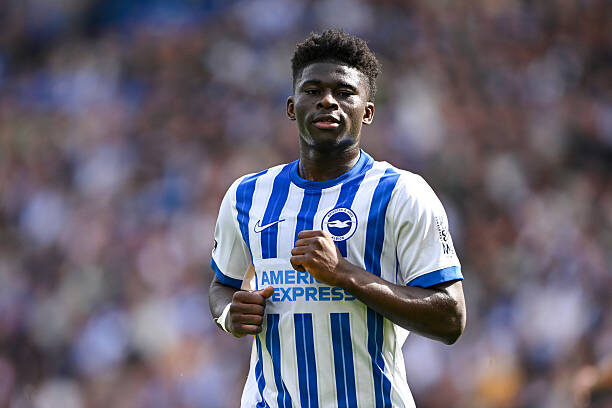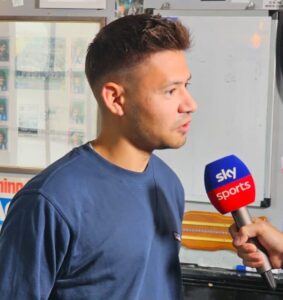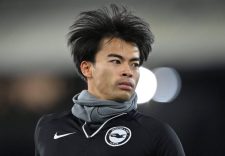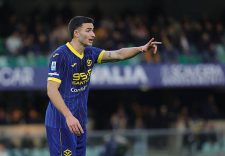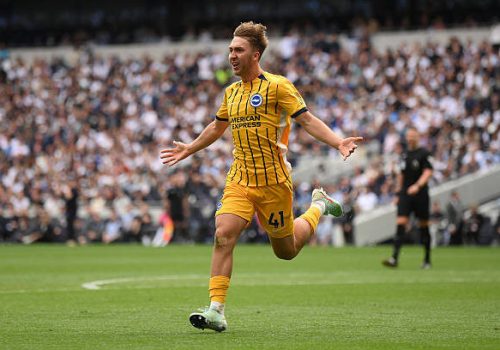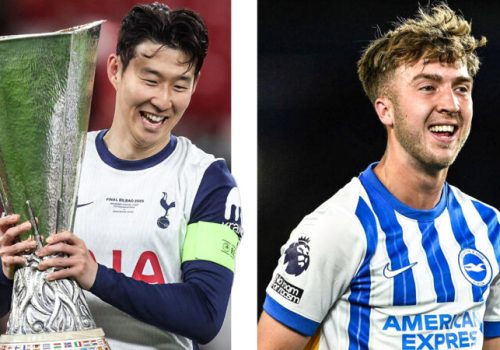Eyebrows were raised after Brighton’s British transfer record £115m sale of Moisés Caicedo went through to Chelsea in 2023. Looking back, the biggest shock wasn’t actually the sale, but the club’s commitment to his guaranteed successor.
What is Tony Bloom’s recruitment plan?
Usually, when Albion sell a player, we get a classic PR notion. ‘Contingency planning’ was thrown around a lot during this time. Bringing in these players is a bit more of a ‘trusting the process’ scenario. However, there is a common misconception about the recruitment strategy.
The key factors and ideas behind Tony Bloom’s model for recruitment could perhaps differ from those of his partner, Paul Barber. Whilst Barber promotes the idea of buying low and selling high, Bloom’s ideology lives heavily in finding the right player at the right price, fitting a certain mould and profile. Losing Caicedo was a massive hit for the club. Analysing data using his famous ‘algorithm’ tool in Starlizard, a business that only allows access to a select few. Brighton and Hove Albion, of course, have that access. The data will examine certain characteristics and attributes for not just players, but managers, coaches, and general members of staff. This gives the ultimate edge towards finding the data’s idea of perfection. After this, the eye test comes in. Is the player going to come and disrupt the flow? Is he worth the risk if he does? Is he going to be someone who can not only fit the club ethos but fit into the club’s training ground friendship groups? Small details matter the most, and this is where the real magic is found. The right people, for the right price, with the right profiles.
Moises’ impact on the pitch was immeasurable, and one of the very few players who I’d look to and say, ‘yeah, he’s got it’. When he wasn’t playing, you could tell. Caicedo’s remarkable ability to receive the ball from almost any angle, and not be shrugged away, was astounding to watch at times, and it suited Roberto De Zerbi’s style of play like a glove. Not that it would’ve mattered who was in charge at the time anyway…
With this in mind, it disproves the notion that managers should ‘have their own players’. Brighton do it differently, and do differently better than most in the country. The manager can then worry about the tactical side of the game with those available to him.
Bloom doesn’t sign players to match the idea to that of the manager. In fact, it is quite the opposite. This opens the fascination behind the acquisition of our Cameroonian…
Carlos Baleba’s unassailable impact
Carlos Baleba signed for Brighton from Lille as an unproven teenager. Labelled as the “Caicedo replacement” in the media and club briefs, a certain pressure that could have been insurmountable. Baleba’s influence both on and off the pitch is infectious. His attitude, mentality, and general charisma has brought Albion fans towards loving him. One of the key problems of the Caicedo sale was the attention from media marketing promotions and agent talk getting out of hand.
Baleba took a while to settle. During his first season at the club, De Zerbi used him as nothing more than a fringe player, despite having somewhat of a crisis in midfield towards the end of the season. Baleba was always there to step in, but he wasn’t ready yet. As the fanbase knows, the club gives time to these players to settle and find their feet. Coming to a new country, with new languages and cultures. It is a lot of settling to do for very young players, and the naivety that it carries is hard to put a great deal of pressure on when signings are first made.
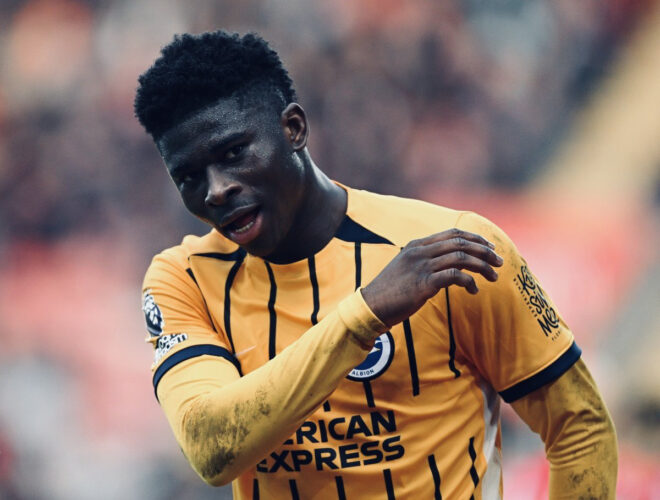
The powerhouse midfielder kicked on this season under Fabian Hürzeler, dramatically. His profile is incredibly well-rounded. Strong, imposing, very quick turn of pace, and capable of striding through any opposition’s midfield with ease. Some might say Baleba’s potential is more exciting than his predecessors, and that wouldn’t necessarily be wrong.
Forgetting the technical stuff, Baleba is sublime to watch as far as the eye test is concerned. For me, our player of the season so far. His dynamism across his skillset is incredibly exciting. We’re witnessing a potential next-generation footballer, and with the right guidance, he could be playing at the top level for years to come. From being defensively brilliant, to intense bursts of pace, an everything footballer.
Most significantly, we’ve been seeing him filling in at centre-back alongside Lewis Dunk and Jan Paul Van Hecke. Instantly, the new signs of maturity to fill in at such a key position at just 21-years-old is something to seriously shout about. Looking composed throughout the game, and given the license to roam and push forward. This trend led to a 93rd-minute winner last weekend against West Ham. A strike worth any fee, data analysis, or flying pint.
Amidst the greatness, his time still isn’t yet. Signs of naivety and immaturity on the pitch can remain, even while kicking on. Brighton have a rare quality: players can improve here better than at most other clubs. Why? Not only because of the aforementioned recruitment, but the fans have a total buy-in towards the team, too. They trust the club’s recruitment ethos, and thus trust the players to improve and be handed the time they need. The only trouble Albion could have is the consistent pushing of boundaries, ie Europa League more often than not, requires keeping hold of these players and standing strong.
It is all well and good labelling Baleba as the ‘next £100m Brighton player’, but why can’t we start saying ‘the next big Brighton player’? The expectation on players naturally, and sometimes rightfully, flies through the roof, whilst forgetting entirely the age of these modern athletes. Fans can expect the world, because this is their world. However; hearing your CEO tout players that are still, in my humble opinion, in their early Brighton days, leaves a bitter taste in the mouth. Baleba has the potential to be a superstar, he already is one. So let’s see what he can do in the next 5 years, not talk about the fee he should or shouldn’t be worth.
Stay in Brighton, and see the growth.


